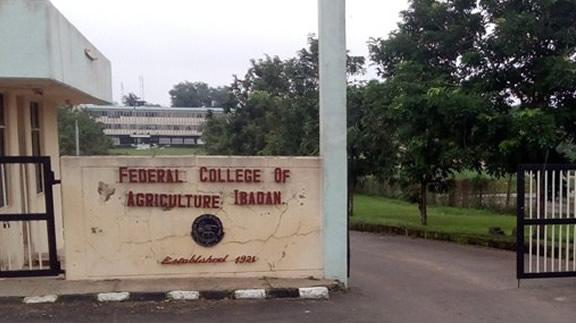The Academic Staff Union of Colleges of Agriculture (ASUCA) has initiated a three-day warning strike scheduled to commence on Monday and conclude on Wednesday of the following week. This action comes as a direct response to the perceived controversial appointment of Professor Jeremiah Atumgwu as the Provost of the Federal College of Agriculture in Ibadan, Oyo State. ASUCA’s primary contention stems from the belief that Professor Atumgwu’s appointment contravenes the pre-established criteria for the position. The advertised requirements specifically stipulated that eligible candidates should be Assistant Directors, Associate Professors, or Principal Lecturers drawn from either the National Agricultural Research Institutes (NARIs) or the Federal Colleges of Agriculture (FCAs). Professor Atumgwu’s background as a university professor falls outside this specified scope, thus triggering ASUCA’s protests.
ASUCA’s President, Williams Manggoel, articulated the union’s concerns, emphasizing that the appointment not only disregards the advertised criteria but also poses a significant threat to the morale and career progression of academic staff within the agricultural colleges. The union argues that appointing university professors to leadership positions within these colleges devalues the expertise and experience of those who have dedicated their careers to agricultural education and research. This practice, they contend, could potentially lead to a “brain drain” as qualified professionals become disheartened by the lack of recognition and upward mobility within their own institutions.
Furthermore, ASUCA has expressed strong reservations regarding the advertisement for the Provost/CEO position at the Federal College of Animal Health and Production Technology in Vom. The advertised minimum qualification for this position is Associate Professor, a criterion that ASUCA finds unacceptable. Maintaining its stance on internal promotions, the union insists that only qualified individuals from FCAs and NARIs should be considered for such positions. ASUCA demands the withdrawal and subsequent correction of the advertisement to align with the criteria used for the FCA, Ibadan, Provost position. They argue that no new regulations or directives have been issued between the two advertisements that would justify the discrepancy in qualifications.
ASUCA’s concerns extend beyond the immediate appointments. The union warns that appointing university professors who are unfamiliar with the specific challenges and operational realities of agricultural colleges could destabilize the system. They argue that such appointments often prioritize personal gain over institutional advancement, with these professors potentially returning to universities after their tenure, leaving the colleges in a precarious state. The union views these appointments as a direct affront to the autonomy and unique identity of the agricultural college system, advocating for leadership to emerge from within the ranks of individuals who possess a deep understanding of the system’s mission, vision, and structure.
ASUCA underscores the importance of recognizing the distinct nature of agricultural colleges. These institutions, they argue, differ significantly from universities in their mission, vision, and organizational structure. The unique challenges faced by agricultural colleges necessitate leaders who possess a nuanced understanding of the sector, an understanding that can only be gained through direct experience within the system. Appointing university professors, ASUCA contends, disregards the specialized knowledge and expertise cultivated within the agricultural college system, potentially leading to ineffective leadership and hindering the progress of these crucial institutions.
In addition to the concerns regarding appointments, ASUCA has also raised the issue of delayed releases of the Scheme of Service (SOS) and Condition of Service (COS) for Federal Colleges of Agriculture. These delays, according to the union, have resulted in the continued use of outdated documents, creating ambiguity and hindering effective administration. The outdated documents fail to reflect the current realities and needs of the colleges, further compounding the challenges faced by the institutions. The ongoing use of these documents underscores the broader issue of systemic neglect and lack of attention to the specific needs of the agricultural education sector, a situation that ASUCA is actively working to address. The union sees the resolution of these issues as crucial to the long-term stability and effectiveness of the agricultural college system.














